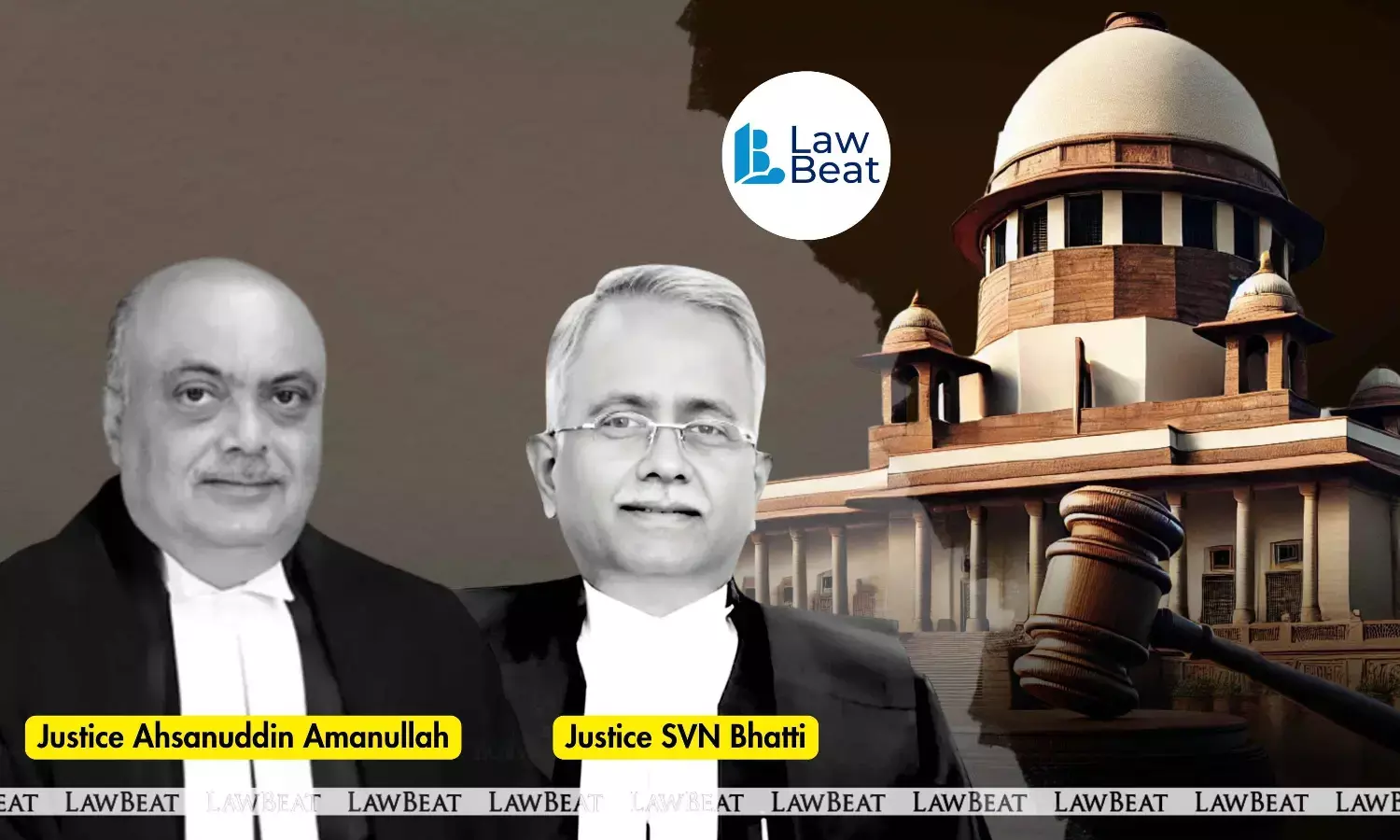Terror Accused Ghulam Bhat: Supreme Court Declines Premature Release Plea

The Supreme Court sets aside bail in the Rs 6.25 crore land fraud case
The Supreme Court on Tuesday refused to entertain a plea filed by terror convict Ghulam Mohammad Bhat seeking premature release after serving 27 years of imprisonment for a triple murder.
However, the Court granted liberty to Bhat’s counsel to file an Interlocutory Application (IA) in a pending matter challenging the Union Territory’s remission policy that bars release of convicts involved in terrorist acts.
The Bench of Justice Ahsanuddin Amanullah and Justice SVN Bhatti was hearing the plea filed by Bhat, who was convicted under Section 302 of the Indian Penal Code and provisions of the Arms Act, but not under the now-lapsed Terrorist and Disruptive Activities (Prevention) Act (TADA).
Conviction Without TADA Not Enough, Says State
Appearing for Bhat, Senior Advocate Colin Gonsalves submitted that he was convicted only for murder and possession of arms, and not for any terrorist offence under TADA. “Nothing was proved in court to attract TADA,” he argued, contending that the remission policy should apply since the offence did not carry the legal label of “terrorism”.
On the contrary, Additional Solicitor General (ASG) KM Nataraj, appearing for the Union Territory of Jammu and Kashmir, opposed the plea. He submitted that the act in question; the killing of three individuals, including an Army informer, was clearly a terrorist act, regardless of whether TADA was invoked.
ASG Nataraj told the Court that Bhat had entered the house of an Army informer and opened fire using an AK-47 rifle, also recovering grenade launchers from the scene. “This was not an ordinary crime. It was an act to instil fear and deter people from cooperating with security forces,” he said.
Bench: "This Is a Terrorist Act"
The Bench agreed to the prosecution’s reasoning, noting that the nature and motive of the act carried clear terrorist overtones.
Justice Amanullah observed, “Even if he was not charged under TADA, that does not change the character of the act. If you enter someone’s house and shoot them because they cooperated with the Army, that’s not just murder, it’s an act to create fear, to send a message that siding with the law has consequences.”
Responding to Gonsalves' argument that no court had officially declared the act as terrorism, Justice Amanullah remarked, “We tentatively agree that this is an act meant to create havoc and to prevent citizens from supporting the law. We cannot shut our eyes.”
Justice Bhatti added, “They were strangers. The prosecution says they were targeted for being informers. That changes the complexion of the case.”
Policy Bars Release of Terror Convicts
The Court was informed that under the prevailing remission policy of the Union Territory of J&K, any person convicted in connection with a terrorist act, even if not formally convicted under TADA or UAPA, is not eligible for premature release.
Senior Advocate Gonsalves then urged the Court to permit him to challenge the constitutionality of this policy in the same proceedings, noting that a similar petition is already pending before the Court.
Court Allows Challenge Through IA
The Bench granted liberty to Bhat to file an IA in the pending case challenging the remission policy, and directed that the matter be listed after two weeks.
However, it clarified that the present plea for premature release was being disposed of at this stage.
ASG Nataraj submitted that in a similar matter, a coordinate Bench had held that such policy challenges must first be raised before the jurisdictional High Court.
The Court, however, refrained from expressing any view on that aspect, saying it would be considered at the appropriate stage.
Case Title: Ghulam Mohammad Bhat v. Union Territory of Jammu and Kashmir
